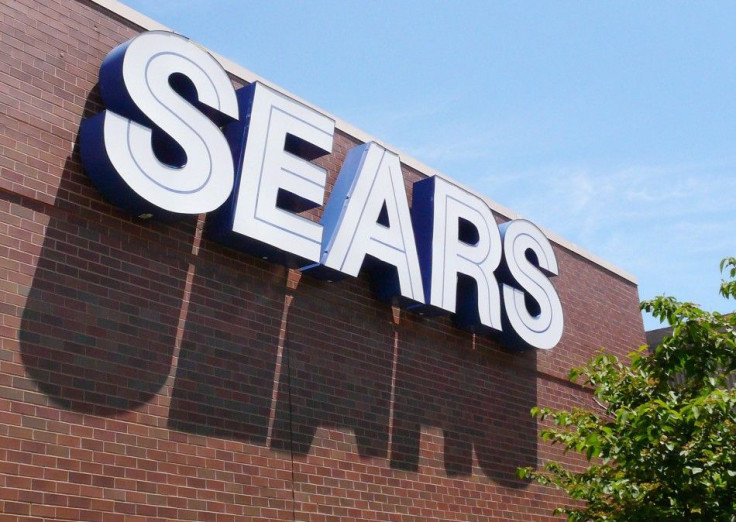Sears' $69 iPad 2 Debacle: The Customer is Always Right?
COLUMN: An Indictment of Online Retailers

The disappointment around the failed Sears sale of an iPad 2 for $69 continues to shed light on the issues of third-party vendors in this new e-tailing world.
I worked in retail a few summers during college, including at the aforementioned Sears. Even though I wasn't pursuing retail as a career, I still had something drilled into my head each day at work: The customer is always right.
When there was an issue on pricing, whether it was a poorly marked item or an incorrect price in the circular advertising, the customer was always given the benefit of the doubt and given the price that he or she had seen.
This practice seems to have been in place for a long, long time, dating back to the early days of brick and mortar business. Customer service was considered a major priority for companies, and a lot of companies would be willing to take a small financial hit if a mistake was made, especially if it ensured that the customer would come back -- again and again.
But as seen with the Sears' iPad 2 debacle, when a third party vendor advertised an iPad 2 for $69 at sears.com only to later claim it was a typo and have Sears close out all sales, angering customers, companies have not only moved away from customer service in this new e-tailing realm, but they've also moved beyond accountability, especially when third party vendors are involved.
Third-party vendors: More harm than benefit?
That's a problem, since most of the biggest online retailer companies use third party vendors, raising major questions now and into the future as to whether the customer will always be right with online sales involving third-party vendors.
Part of the outcry about Sears centered around the fact customers were unaware that they were not buying a product directly through Sears. Customers, incorrectly thought that by buying an item on sears.com, they would be getting the product through the well-known and respected Sears.
But as most e-retailers do nowadays, Sears was actually selling the product through a third-party vendor and had clauses that allowed it to avoid responsibility.
In its Web site's terms of service section, Sears states, In the event of a pricing error on the Sears Site, Sears reserves the right to cancel any orders resulting from such pricing errors.
While this likely proves to be a great get out of jail free card for Sears in situations like this, it certainly won't gain it any new customers or fans. It has already frustrated and confused customers involved with the fiasco.
When I go to sears.com I want to be shopping at Sears, one user wrote on Sears' message board. Then I find out some random company with a gmail.com email address is who I just spent my money with and I won't be getting my product after all. Shady business practice in my opinion.
In this situation when the blame began to pile up, Sears immediately shifted the blame on GSM On Sale, the third-party vendor, and just returned the money of each order back to the customer.
This type of relationship between major company and third-party vendors has both drawbacks and benefits to big companies like Sears.
In one instance it's beneficial because customers go onto sears.com, buy products from third-party vendors but still think they are getting the items from sears.com. Assuming everything works out right, Sears gets credit for a quality product and sale that it was only an intermediary for.
But the iPad 2 situation also shows the potential downfalls of using third-party vendors. Sears was not the one that made the mistake on the pricing of the advertisement, but now Sears will get the majority of the heat from upset customers.
The company is doing its best to shift all of the blame to GSM On Sale, but customers will still associate the mistake with Sears, since that's where they tried to buy the product from. And unless Sears does something special to rectify the situation for the forlorn customers, it will continue to receive negative attention and backlash.
Lack of Accountability with Big Companies
Neither Sears nor the third-party vendor had any interest in following through with sales of iPads at a $600 discount because of a typo. But there was a time when if a company made a mistake on pricing, it was on them and not the customer. That was the price they paid for mistakes.
Even though honoring the sales would be costly to Sears, and even though the company was not required to make it right like we were told when I worked that summer in a Sears store, the company's refusal to honor the sales just further shows the lack of accountability most big online companies have these days when third-party vendors are involved.
You think you are buying it from Sears, but no -- look again. Maybe not. If there's a mistake with a third-party vendors, Sears does not want responsibility, even if the sale was made at sears.com.
Most everyone has had a bad online shopping experience at one time or another, and more times than not, third-party vendors have been involved. The episode with Sears and the iPad 2 mistakenly priced by a third-party vendor but then not honored is just one example.
But it's notice to us all that the rules of retail shifted in the transfer to e-tail. The old adage the customer is always right was left behind.
© Copyright IBTimes 2024. All rights reserved.





















